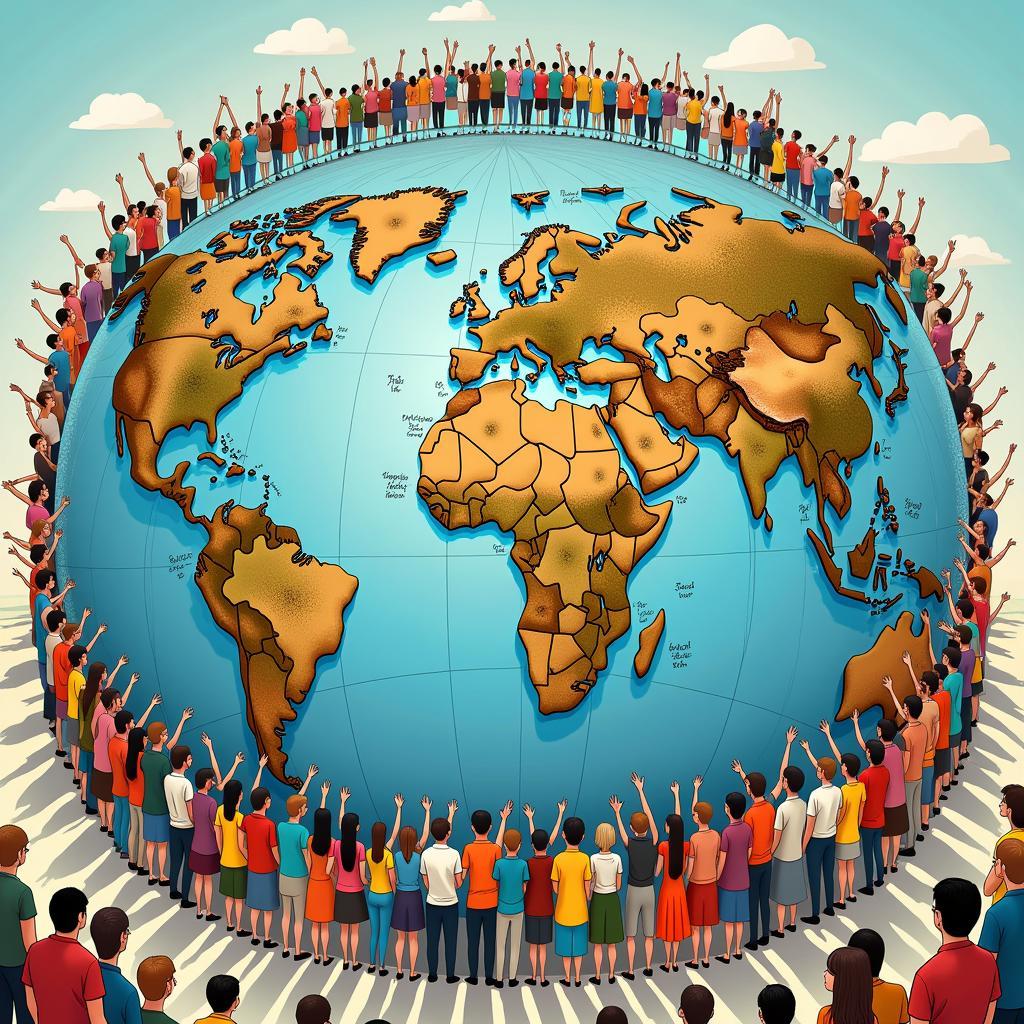Hayek’s “use of knowledge in society” theory, a cornerstone of economic thought, offers profound insights into how dispersed information influences decision-making and, surprisingly, can illuminate paths toward a more peaceful world. This article delves into Hayek’s seminal work, exploring its implications for understanding cooperation, conflict, and the potential for a more harmonious global society.
Decentralized Knowledge and its Implications for Peace
Hayek argued that knowledge is not concentrated in a single entity but dispersed throughout society. Each individual possesses unique, localized knowledge, often tacit and difficult to articulate. This decentralized nature of information has significant implications for how we organize ourselves and interact, especially in the context of global peace.
Hayek’s insights challenge centralized planning, highlighting the limitations of top-down approaches to societal problems, including conflict resolution. A central authority, however well-intentioned, cannot possess all the necessary information to make optimal decisions for a diverse population. Attempts to impose uniform solutions often lead to unintended consequences and can exacerbate existing tensions.
Embracing Diversity of Thought for Conflict Resolution
By acknowledging the dispersed nature of knowledge, we open ourselves to the possibility of more effective conflict resolution. Rather than relying on a single, potentially biased perspective, we can draw on the diverse experiences and insights of those directly involved in a conflict. doomed society
This approach encourages dialogue and fosters a sense of shared ownership in finding solutions. It recognizes that local knowledge and cultural nuances are crucial for understanding the root causes of conflict and crafting sustainable peace.
The Spontaneous Order and its Role in Building Harmony
Hayek’s concept of “spontaneous order” further illuminates the connection between decentralized knowledge and peace. Spontaneous order arises from the uncoordinated actions of individuals pursuing their own goals within a framework of rules. This emergent order, often more effective than centralized planning, can contribute to a more harmonious society.
Think of language, a prime example of spontaneous order. No central authority designed language; it evolved organically through the interactions of individuals over time. Similarly, peaceful societies often emerge not from top-down dictates but from the bottom-up evolution of norms and institutions that facilitate cooperation and mutual respect.
Fostering Trust and Communication for a Peaceful Future
Hayek’s work underscores the importance of fostering trust and communication as essential ingredients for peace. When individuals are free to exchange information and engage in voluntary cooperation, they can discover mutually beneficial solutions and build relationships based on trust. This process can contribute to a more peaceful and prosperous society, both locally and globally. the use of knowledge in society hayek
Hayek’s Use of Knowledge and the Future of Peacebuilding
Hayek’s insights provide a valuable framework for understanding the complexities of peacebuilding. They encourage us to move away from centralized, top-down approaches and embrace the power of decentralized knowledge and spontaneous order.
By fostering communication, respecting diverse perspectives, and building trust, we can create a more peaceful and harmonious world.  Hayek's Contribution to Future Peacebuilding
Hayek's Contribution to Future Peacebuilding
Conclusion
Hayek’s use of knowledge in society provides a compelling argument for embracing decentralized systems and fostering open communication as pathways to peace. By recognizing the limitations of centralized planning and valuing the unique knowledge held by each individual, we can build a more just, harmonious, and peaceful world. This approach requires a shift in mindset, a willingness to listen, and a commitment to fostering cooperation. Embracing Hayek’s insights offers a powerful roadmap toward a future where knowledge, understanding, and empathy serve as the cornerstones of a truly peaceful global society.
FAQ
- What is the core idea of Hayek’s “use of knowledge in society”?
- How does decentralized knowledge contribute to peacebuilding?
- What is spontaneous order, and how does it relate to peace?
- How can Hayek’s ideas be applied to real-world conflict resolution?
- What are the limitations of centralized planning in achieving peace?
- How can we foster trust and communication in a diverse global society?
- What role does individual knowledge play in building a peaceful future?
Common Situations and Questions
- Situation: Two communities are in conflict over limited resources. Question: How can Hayek’s framework be used to facilitate dialogue and find a mutually beneficial solution?
- Situation: International negotiations are stalled due to differing perspectives. Question: How can the concept of dispersed knowledge be applied to bridge the gap and find common ground?
Further Exploration
Explore related articles on our website for more in-depth analysis: See our other articles on the use of knowledge in society hayek and doomed society.
Call to Action
For further assistance, contact us:
Phone: 02043854663
Email: [email protected]
Address: Khu 34, Bac Giang, 260000, Vietnam
Our customer support team is available 24/7.